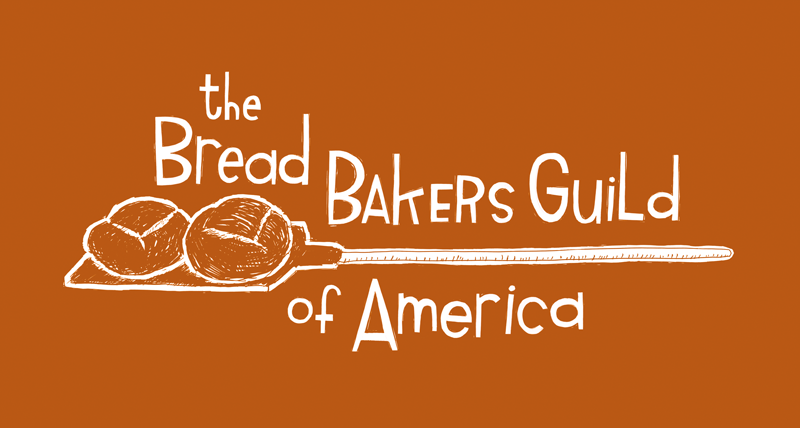Guild member Nico Melas, founder of Mill Song Bakery in Harrisonburg, Virginia, has crafted a unique path in the world of bread and sustainability. Raised in Washington D.C. and Northern Virginia, Nico's love for Virginia’s agrarian roots led him to create Mill Song, a bakery deeply dedicated to local sourcing, heritage grains, and regenerative practices. With a love for history, Nico approaches his work with a keen sense of cultural preservation and environmental care. Nico recently spoke with the Guild about how his commitment to sustainable and traditional methods has made Mill Song Bakery a community hub for those who value bread as both sustenance and a way to support regional agriculture.

Nico, thanks for joining us for the Member Spotlight! Can you tell us about how you got into baking and what inspired Mill Song Bakery?
Nico: Absolutely. My wife and I started out as homesteaders, focused on sustainability. We wanted to live in a way that could work for everyone on the planet, inspired by the idea of a “global middle class” lifestyle. I’d bake a loaf of bread each week as one of our homesteading chores. A neighbor lent us her electric mill, and I’d use that to grind flour. It was a simple start, baking from cookbooks like Bread Alone and Tartine. Eventually, we connected with a Quaker community in Missouri that led us to an apprenticeship with a Gandhian Catholic community in Brittany, France where a baker produced income for the community through grain growing, milling, and wood-fired baking.

What was it like to apprentice there?
It was really transformative. The baker I trained with grew his own grains, milled them, and baked everything by hand with a traditional kneading trough. The experience was old-school; my mentor had me learn at a gradual pace. It was watch-and-repeat until I’d mastered each step, from mixing to shaping larger loaves. That slow, steady training laid a solid foundation for me. When I came back to the U.S., I knew I wanted to continue working with fresh, local grains and sustainable practices.

How did that experience translate to starting Mill Song Bakery back in Virginia?
After returning to the States, I worked at Seylou Bakery in D.C., where I learned even more about sourcing regional grains and adapting to different ingredients. The pace was fast and exciting, with new grains coming in all the time from Pennsylvania, Maryland, Virginia, and beyond. It was hard on my family, but I learned so much from the team there. When I finally moved back to Rockingham County to start Mill Song Bakery, I knew I wanted to source everything as locally as possible. Our goal was to buy everything from within the Shenandoah Valley, focusing on regenerative practices with the farmers here.

It’s impressive that you’ve been able to source so locally. How has that worked out?
It’s been incredible, and we must give all the credit to the amazing Shenandoah Valley climate and an intact generational farming community.At first, we brought in grains from the Chesapeake Bay watershed, but within a year, two organic dairy farms nearby offered us wheat they were experimenting with, and it was a perfect fit. Now, three years in, we’re sourcing almost everything from our own county. One local farm, Hilltop Farm in Dayton, Virginia, does no-till, regenerative organic farming and has been a huge part of that success. Their focus on soil health and micronutrient balance results in really high-quality grains. They use methods like subsoil aeration rather than plowing, and they’re meticulous about nutrition in the soil, which makes their wheat naturally pest resistant. It’s amazing how their no-till approach parallels the gentle handling you want for bread dough.

That’s fascinating. There’s definitely a connection between respecting the soil and respecting the dough. How has your work with local grains changed the types of bread you’re able to produce?
Using local grains has allowed us to work with unique varieties, like a Pennsylvania heritage wheat called Pennoll and a French variety, Rouge de Bordeaux. Each of these grains has its own character and qualities, and we’re able to create breads that highlight those differences. We also have plans to de-hull our own spelt, which we’re growing locally, so we won’t need to source it from Pennsylvania anymore. The variety and quality of grains available to us here have really shaped our menu.

In addition to sourcing locally, it sounds like Mill Song Bakery has a focus on traditional, hands-on baking. How has your approach evolved since your apprenticeship in France?
While France provided a great foundation, Seylou in D.C. really opened my eyes to the diverse applications of sourdough and stone-milled flours. In France, I learned by repetition, but at Seylou, I was challenged by the rapid pace and the need to adapt to constantly changing grains. That experience taught me the flexibility and creativity that are essential in sustainable baking. Now at Mill Song, we keep that flexibility while focusing on hyper-local grains and working with farmers directly to ensure quality.

That’s really inspiring, Nico. It sounds like you’ve built a bakery that’s not only sustainable but also deeply rooted in the local community. What’s next for Mill Song?
We’re continuing to deepen our connections here in the Shenandoah Valley. I’d love to expand our local sourcing even more and possibly educate more people on the benefits of heritage grains and no-till farming. We’re also working on securing a de-huller so we can bring more locally grown grains into the bakery. I think our mission will always be about creating bread that respects the land, the grains, and the people who grow and enjoy it. Also, we continue to dream about running our mills by water wheel or solar power in the future.
Learn more about Nico and Mill Song Bakery here.
